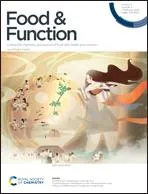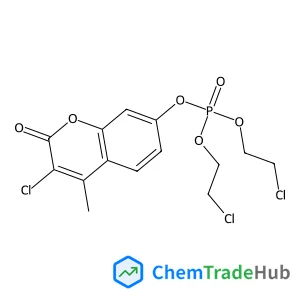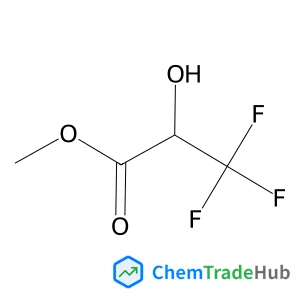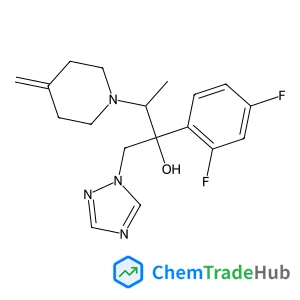Maternal inulin alleviates high-fat diet-induced lipid disorder in offspring by epigenetically modulating hypothalamus feeding circuit-related genes
文献信息
Qian Zhang, Xinhua Xiao, Jia Zheng, Ming Li, Miao Yu, Fan Ping, Tong Wang
Increasing evidence supports the existence of fetal-originated adult diseases. Recent research indicates that the intrauterine environment affects the fetal hypothalamic energy intake center. Inulin is a probiotic that can moderate metabolic disorders, but whether maternal inulin intervention confers long-term metabolic benefits to lipid metabolism in offspring in their adult lives and the mechanism involved are unknown. Here, we used a maternal overnutrition model that was induced by excess energy intake before and during pregnancy and lactation and maternal inulin intervention was performed during pregnancy and lactation. The hypothalamic genome methylation in offspring was analyzed using a methylation array. The results showed that maternal inulin treatment modified the maternal high-fat diet (HFD)-induced increases in body weight, adipose tissue weight, and serum insulin and leptin levels and decreases in serum adiponectin levels. Maternal inulin intervention regulated the impairments in hypothalamic leptin resistance, induced the methylation of Socs3, Npy, and Il6, and inhibited the methylation of Lepr in the hypothalamus of offspring. In conclusion, maternal inulin intervention modifies offspring lipid metabolism, and the underlying mechanism involves the methylation of genes in the hypothalamus feeding circuit.
相关文献
IF 6.222
Sensitive and specific detection of tumour cells based on a multivalent DNA nanocreeper and a multiplexed fluorescence supersandwichIF 6.222
In situ growth of all-inorganic perovskite nanocrystals on black phosphorus nanosheetsIF 6.222
Facile room-temperature growth of nanostructured CuBi2O4 for selective electrochemical reforming and photoelectrochemical hydrogen evolution reactionsIF 6.367
Nickel-containing N-doped carbon as effective electrocatalysts for the reduction of CO2 to CO in a continuous-flow electrolyzerIF 6.367
The limits to biocatalysis: pushing the envelopeIF 6.222
Electrocatalytic cleavage of lignin model dimers using ruthenium supported on activated carbon clothIF 6.367
Photoactivatable fluorophores for durable labelling of individual cellsIF 6.222
Ultra-thin NiFeSe nanosheets as a highly efficient bifunctional electrocatalyst for overall water splittingIF 6.367
PEST (political, environmental, social & technical) analysis of the development of the waste-to-energy anaerobic digestion industry in China as a representative for developing countriesIF 6.367
来源期刊
Food & Function

Food & Function provides a unique venue for physicists, chemists, biochemists, nutritionists and other food scientists to publish novel, cutting-edge, original research focussing on food, its nutrients and their relation to human health and nutrition. We welcome research describing the: Physical properties and structure of food and how this relates to sensory perception and human health Biochemical and physiological actions of food components Interactions between foods, gut microbiota and human physiology Nutritional and biological evaluation of food Clinical and population studies using food or food components Development of biomarkers of food intake and effects on human health We also welcome systematic reviews and meta-analyses of existing studies in the literature, provided these are objective and scientifically valid Food in this context is defined as materials of plant, animal or mineral origin, which are consumed orally (by humans) for pleasure and to sustain growth and vital processes. Examples of research topics that are of interest to be published in Food & Function are: Chemistry and physics of food components and digestion processes Relationship between the physical properties/structure of food and nutrition and human health - for example, impact of food matrix or processing on nutrient release and uptake Molecular properties and physiological effects of food components (nutrients, fibres, essential micronutrients, phytochemicals, bioactives, food substitutes, novel ingredients, allergens, flavours and fragrances) Nutritional and health effects of food including bioavailability and metabolism assessment of food components (nutrients, micronutrients and other microconstituents) Efficacy and mechanisms of food constituents in the body - including biomarkers of intakes, exposure and effects Impacts of foods/food components on gut microorganisms and human physiology - For example impact of fermented foods Role of nutrition and diet in human disease prevention and development Cellular and molecular effects/mechanisms of food/food components image block The following types of research are not within the scope of Food & Function: Research relating to traditional herbal medicines, medicinal plants or active compounds extracted from such plants (materials that are primarily consumed as medicine, i.e. the intended purpose is primarily to treat, cure or prevent a non-deficiency disease) or relating to foods not recognised as human diet contributors Animal nutrition research that is not primarily designed as a model to benefit human nutrition (for example, studies of growth/accretion, heat stress, weaning, ruminant digestion, meat quality, etc.) Treatments administered by non-oral routes such as injection (subcutaneous, intramuscular, intraperitoneal, etc.), dermal/transdermal, rectal, inhalation, nasal, etc. Exceptions are when such routes of administration are used for mechanistic/control purposes in the experimental design Pharmacological/pharmaceutical approaches: Encapsulation, emulsification and/or pure controlled release of compounds or bioactives that do not come directly from edible foods, such as dietary supplements - these are better suited to a pharmaceutical journal In vitro or in vivo studies with poorly defined (insufficiently characterised) extracts and studies without appropriate controls will not be considered Cells studies not considering the metabolism of food components ingested – for example, irrelevant exposure of cells to compounds not present in the body after absorption Manuscripts with only a fully theoretical/bioinformatic approach and without appropriate support from analytical evidence will not be considered for publication Studies focussing solely on food engineering, preservation and sustainable technologies – these can be published in our companion journal Sustainable Food Technology Pure food analysis - these can be published in Analytical Methods
推荐供应商
 江苏金沃新材料有限公司
江苏金沃新材料有限公司 上海睿赢化工有限公司
上海睿赢化工有限公司 苏州升井环保设备有限公司
苏州升井环保设备有限公司 江西贝仕达实业有限公司
江西贝仕达实业有限公司 无锡惠尔环境试验设备厂
无锡惠尔环境试验设备厂 Waagen Scheffknecht有限公司
Waagen Scheffknecht有限公司 上海济梁金属材料有限公司
上海济梁金属材料有限公司 Hochrein测量技术
Hochrein测量技术 湖南丰恩新材料科技有限公司
湖南丰恩新材料科技有限公司 -。 威廉·施密特公司
-。 威廉·施密特公司












![56843-76-6 - 4-羟基-2-苯基噻吩[2,3-D]嘧啶 56843-76-6 - 4-羟基-2-苯基噻吩[2,3-D]嘧啶](/structs/568/56843-76-6-0035.webp)

